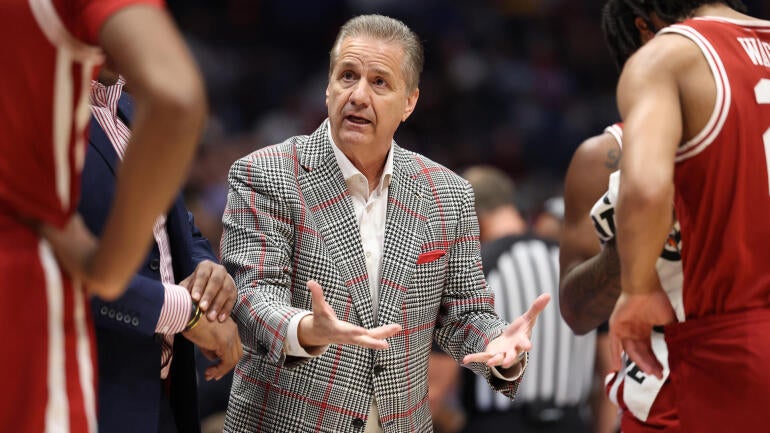
Arkansas' John Calipari says he would retire before becoming 'transactional' in NIL, transfer portal era
Calipari is set in his ways, for better or worse

This season marks 34 years on the college basketball sidelines for Arkansas coach John Calipari. With other old-guard coaches backing out of the sport by the year, those unable or unwilling to fully embrace the NIL and revenue-sharing era could soon be extinct. And Calipari made it clear at SEC Media Days Tuesday that he is part of that contingent.
Imminent retirement may not be on the table for the three-time National Coach of the Year, but if his methodology proves untenable, he said that is when he would call it a career.
"I want to help 25 to 30 more families," Calipari said. "The only way you do that is you're transformational as a coach. You're not transactional. If I become transactional -- I'm going to pay you this to do this and that -- then I won't do this anymore. I don't need to."

Calipari's final years at Kentucky came with a clear ceiling, and many attributed the early-round NCAA Tournament exits to his staunch commitment to an outdated model. Calipari was as successful as they came when recruiting one-and-done elite high school prospects was a surefire method to reach the Final Four. But as the transfer portal led teams to stock up on veteran standouts and resulted in experienced teams winning championships, Calipari fell behind.
"I think all of those said I've done what I do, and I'm not willing to do 'all this' to stay in the profession," said Calipari. "If you watched us in practice, you would say, 'He's still connected.' I'll know before anybody else that it's transactional now. That's why if someone put their name in the portal, I said, 'You're not coming back,' because it's not going to be transactional. If this is what you want, let's go, let's work together."
Most first-year coaches load up on transfer talent to construct their debut rosters. Despite inheriting an empty locker room at Arkansas, Calipari took just two transfers from programs not named Kentucky. High school recruits, and those who followed him from his old school, made up his Sweet 16 squad.
One of the "transactional" elements of college basketball with which Calipari says he disagrees is the constant transferring from program to program in search of paydays. Players who seek to use every last ounce of their eligibility to capitalize on their earnings potential also do not fit into the Calipari model. The second-year Razorbacks coach wants to reform those realities at a sport-wide level.
"Part of the reason I'm still doing this, my son is in coaching," said Calipari. "We've gotta fix some of this stuff before we're out for our own children. Right now, the things we're dealing with, we want to put it to other people, but the thing is filtered down to the coach and coaches. …
"Why would kids want to stay in school five extra years? For money. Well, we've gotta say 'You've got five years to play four, and that's it. That's all.' If we get those two things in order, we're on the path to being better."


















